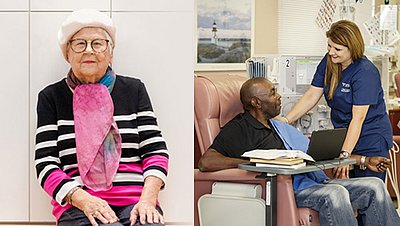Our patient stories and company features.
Superior Care Down Under
A good and safe experience
“Day hospitals were something new when I discovered them during a visit to the U.S. in the mid-1980s,” Zabell recalls. “After taking a look at a couple of day surgeries in the Phoenix area, I realized that was the way the world would turn.” Zabell was impressed by the streamlined yet reliable treatment options these facilities offered. After returning to Australia, he convinced a fellow surgeon to help him set up the first so-called Surgicentre in Toowoomba. The patient count quickly outgrew the facility, proving Zabell’s intuition right.
“The success of day hospitals has been mainly driven by patients who don’t like the idea of staying in hospital overnight. Once patients have had day surgery, they tell others about their good, safe experience,” he explains. “What’s more, relatives and other caregivers only need to take a half-day off for a procedure.” The surgeons who use the operating theaters at a day hospital also benefit, according to the veteran ophthalmologist, as they can keep up their private practice but still have access to state-of-the-art equipment. “A further advantage is that there are fewer staff changes at a day hospital as they don’t run 24/7 shifts. Instead, nurses and physicians work as part of a permanent team, performing elective procedures that are scheduled in advance.”
The first dedicated day surgery opened for business in the U.S. in 1969, and the concept was gradually adopted across the U.S., the U.K. and Canada. The success of these facilities in Australia eventually led to the formation of the Cura Group in 2008, supported by investments from management, physicians and an Australian private equity firm. Today, there are close to 360 day hospitals in total on the continent, with the majority being multi-disciplinary.
Cura combining forces with Fresenius Medical Care Australia has been a major bonus for all involved. Operating outpatient facilities is one of Fresenius Medical Care’s core competencies. Cura’s network of day hospitals – the largest in the country – enhances Fresenius Medical Care’s vision to offer holistic care beyond dialysis. Cura and its affiliated surgeons also benefit from their new majority shareholder, according to Zabell.
“Fresenius Medical Care is an excellent fit, because it’s a global health care company that understands and appreciates what Cura does. We both stand for high-quality treatment and, ultimately, for improved patient outcomes. Fresenius Medical Care helps us grow the business by bringing new surgeons on board to serve growing markets in Australia’s major population centers.”







